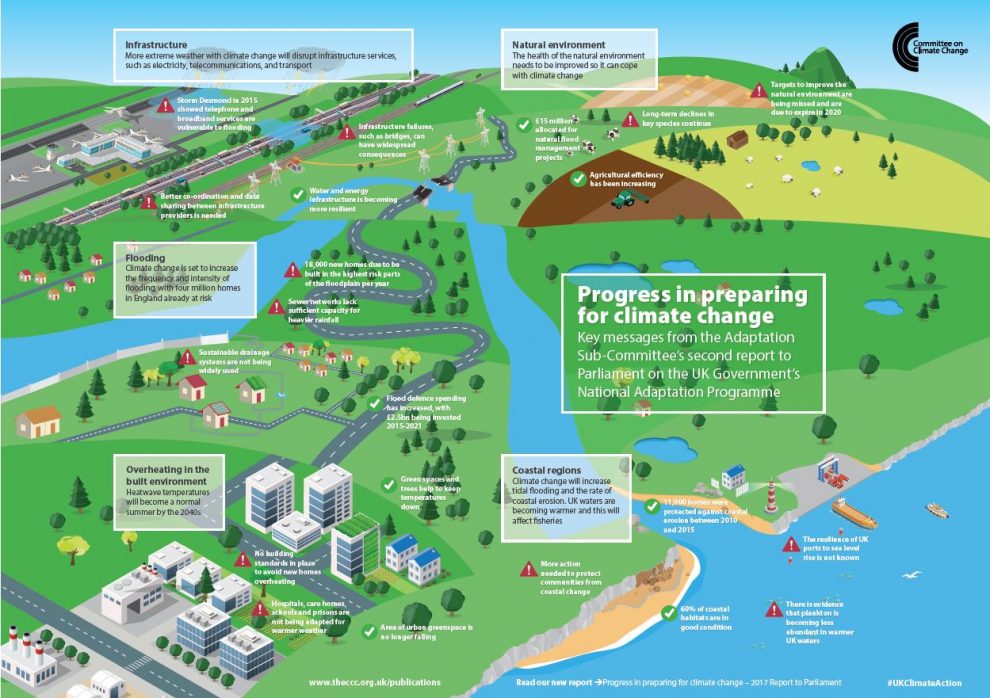A new study finds climate change skeptics are more likely to behave in eco-friendly ways than those who are highly concerned about the issue.
Do our behaviors really reflect our beliefs? New research suggests that, when it comes to climate change, the answer is no. And that goes for both skeptics and believers.
Participants in a year-long study who doubted the scientific consensus on the issue “opposed policy solutions,” but at the same time, they “were most likely to report engaging in individual-level, pro-environmental behaviors,” writes a research team led by University of Michigan psychologist Michael Hall.
Conversely, those who expressed the greatest belief in, and concern about, the warming environment “were most supportive of government climate policies, but least likely to report individual-level actions.”
Sorry, I didn’t have time to recycle—I was busy watching a documentary about the crumbling Antarctic ice shelf.
Illegal’s dragging of ICE agent shows the exact danger the officer who shot Renee Good feared, expert says
The Iran Strikes Have Flooded X with So Much AI Disinformation That I Went Crawling Back to Cable News
‘Blankies,’ ICE tactics and luxury jets: Top moments from Noem’s House testimony
Op-Ed: America’s Education Crisis, and How to Solve It
Second suspect arrested after NYC snowball fight sends 2 police officers to hospital
DOJ quietly closes autopen investigation targeting Biden and aides
Top Trump ally Steve Daines exits Montana Senate race, plans to retire
GOP senators tangle with Noem during heated hearing on her handling of deportation surge
Unearthed video shows Dem candidate supporting ‘reallocation’ of police funding to social service programs
Popular Far-Left Streamer Advises Suicide Bombers to Switch to Drones for Terror Campaigns
Perfect Justice: We’re Raining Destruction on Iran Using a Suicide Drone They Designed But We Perfected
BREAKING: Senate Rejects Dems’ War Powers Resolution Trying to Tie Trump’s Hands on Iran
DHS defends McLaughlin against allegations husband’s company profited millions from ad contracts: ‘Baseless’
Rep. Tony Gonzales admits to affair with staffer who died by suicide: ‘Lapse in judgment’
Minnesota AG Keith Ellison Feels the Heat During Fraud Hearing in DC: ‘You Should Go to Jail’
The study, published in the Journal of Environmental Psychology, followed more than 400 Americans for a full year. On seven occasions—roughly once every eight weeks—participants revealed their climate change beliefs, and their level of support for policies such as gasoline taxes and fuel economy standards.
They also noted how frequently they engaged in four environmentally friendly behaviors: recycling, using public transportation, buying “green” products, and using reusable shopping bags.
The researchers found participants broke down into three groups, which they labeled “skeptical,” “cautiously worried,” and “highly concerned.” While policy preferences of group members tracked with their beliefs, their behaviors largely did not: Skeptics reported using public transportation, buying eco-friendly products, and using reusable bags more often than those in the other two categories.
This pattern was found consistently through the year, leading the researchers to conclude that “belief in climate change does not appear to be a necessary or sufficient condition for pro-environmental behavior.”
Illegal’s dragging of ICE agent shows the exact danger the officer who shot Renee Good feared, expert says
The Iran Strikes Have Flooded X with So Much AI Disinformation That I Went Crawling Back to Cable News
‘Blankies,’ ICE tactics and luxury jets: Top moments from Noem’s House testimony
Op-Ed: America’s Education Crisis, and How to Solve It
Second suspect arrested after NYC snowball fight sends 2 police officers to hospital
DOJ quietly closes autopen investigation targeting Biden and aides
Top Trump ally Steve Daines exits Montana Senate race, plans to retire
GOP senators tangle with Noem during heated hearing on her handling of deportation surge
Unearthed video shows Dem candidate supporting ‘reallocation’ of police funding to social service programs
Popular Far-Left Streamer Advises Suicide Bombers to Switch to Drones for Terror Campaigns
Perfect Justice: We’re Raining Destruction on Iran Using a Suicide Drone They Designed But We Perfected
BREAKING: Senate Rejects Dems’ War Powers Resolution Trying to Tie Trump’s Hands on Iran
DHS defends McLaughlin against allegations husband’s company profited millions from ad contracts: ‘Baseless’
Rep. Tony Gonzales admits to affair with staffer who died by suicide: ‘Lapse in judgment’
Minnesota AG Keith Ellison Feels the Heat During Fraud Hearing in DC: ‘You Should Go to Jail’
Hall and his colleagues can only speculate about the reasons for their results. But regarding the concerned but inactive, the psychological phenomenon known as moral licensing is a likely culprit.
Previous research has found doing something altruistic—even buying organic foods—gives us license to engage in selfish activity. We’ve “earned” points in our own mind. So if you’ve pledged some money to Greenpeace, you feel entitled to enjoying the convenience of a plastic bag.
Regarding climate change skeptics, remember that conservatism prizes individual action over collective efforts. So while they may assert disbelief in order to stave off coercive (in their view) actions by the government, many could take pride in doing what they can do on a personal basis.
The results suggest that “changing skeptical Americans’ minds need not be a top priority for climate policymakers,” at least if their goal is inspiring individual action. Perhaps the more urgent task is to focus on people who already grasp the problem, and get them to align their actions with their concern.
Story cited here.
























